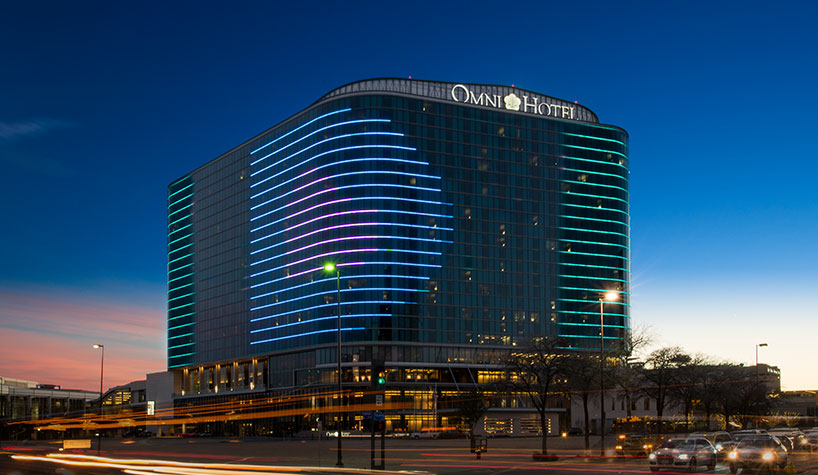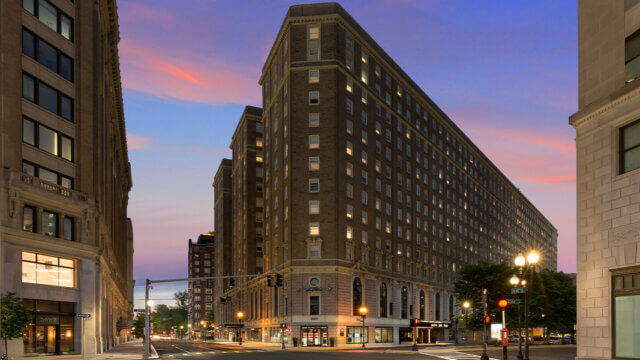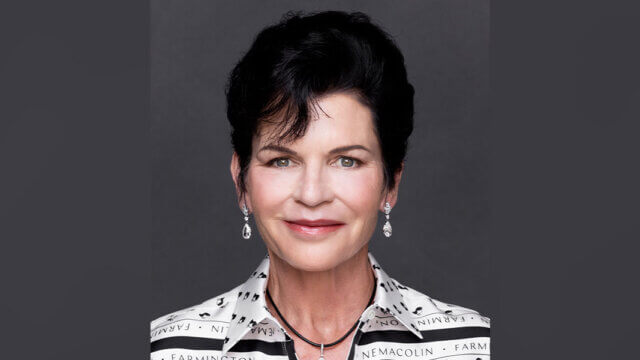EDEN PRAIRIE, MN—Historically, large hotels with hundreds of rooms and thousands of square feet of meeting space have been part of major brands. The properties contain standard room designs, meeting spaces and amenities, which makes it easier for the owners and developers, as well as group planners who want a consistent offering.
While “go with what you know” works for some, as aspirational travel has become more popular, many large hotels are going the independent route to reap the benefits of autonomy.
“These hotels tend to do best in major markets and when business in these cities are reaching high occupancies—the need for having a brand from a financial perspective becomes less,” said Mike Schugt, president of Teneo Hospitality Group, a global sales organization for a worldwide collection of hotels, resorts and destination management companies (DMC), based here. “Owners can save on brand fees, as well as brand guidelines that cost money.”
Schugt pointed out that the trend emerged in 2003 as hotel occupancies in major markets started to increase following the recovery after 9/11. By 2006, during an economic boom, larger hotels in major markets were going the independent route.
“A number of properties in New York City, San Francisco, Miami and Orlando were key to the movement—most notably, the Fontainebleau Hilton became the Fontainebleau Miami Beach,” he said. “Following the Great Recession, this became much more of a trend with hotels such as the Boston Park Plaza (former Starwood Luxury Collection), Manhattan Times Square Hotel (a former Starwood property), Park Central San Francisco (formerly the Westin San Francisco, Market Street), Stanford Court, San Francisco (formerly the Renaissance Stanford Court) and Pier 66 Fort Lauderdale (formerly Hyatt Pier 660). In the last five years, many new-builds have come out of the ground independent and without a soft brand as well.”
These properties are offering a boutique hotel experience in a big package, and feature customized service that focuses on issues important to guest satisfaction. These include sustainability; curated experiences; imaginative decor; original art and architecture; and distinct F&B establishments.
Meetings planners turn to these big-box independent hotels because of their ability to be flexible and offer experiences their groups cannot get at another property.
“These hotels are not cookie-cutter hotels; they have unique personalities and do not need to follow carefully laid brand standards,” said Schugt. “Meeting planners and their attendees are seeking unique and multidimensional experiences. Each independent hotel has its own brand voice, service culture and ethos, which is far different than what large brands provide.”
As examples of the distinct offerings of these hotels, the Boston Park Plaza has added a loft-like contemporary event space, Avenue 34, to go along with its three magnificent ballrooms; the Alohilani Resort in Waikiki Beach, HI, offers a lobby Oceanarium and the Thrillist, an adventurous program of helicopter tours and horseback rides to plant legacy trees in the state’s forests; and the Omni Dallas Hotel can put a group’s name in lights on the Dallas skyline thanks to the mile of LED lights placed around the building.
All three of these properties are part of Teneo’s Big Box Collection, which includes 49 other member hotels across the U.S., Europe and Dubai. Other U.S. properties in the group include the aforementioned Fontainebleau Miami Beach, The Fairmont Chicago Millennium Park and Hotel del Coronado in San Diego.
Authentic Experiences
Jon Crellin, VP of operations and managing director of Boston Park Plaza, offered his views of what makes big-box independent hotels different from their branded counterparts.
“Independent hotels, like Boston Park Plaza, offer an authentic experience of the destination; you know you’re in Boston when you visit our hotel, which is something that planners and attendees alike really enjoy. In contrast, big brand hotels may provide a positive guest experience but be a bit more generic,” he said. “In addition, Boston Park Plaza can offer meeting planners a more seamless experience throughout the booking process. Our sales team is based on property, not in a regional office, and are all solely focused on this one hotel. The team works directly with customers from the property site visit to the negotiating and contracting process to the introduction to the convention service manager.”
He continued, “Throughout the entire booking process and even through execution of the event, our team is with their clients to ensure that everything is flawless. In addition to providing a high level of service through the sales process, the hotel often has the flexibility that branded hotels may not—from negotiating contract terms to curating customized locally inspired menus to creating branding programs throughout its public spaces. We are always enthusiastic about collaborating with our planners to ensure that their Boston meeting is dynamic, thoughtfully executed and an authentic experience.”
Like their branded counterparts, group business provides a major source of revenue. Since March, meeting and conference rooms have been empty for the most part due to the COVID-19 pandemic.
“Big-box hotels, particularly in downtown locations, have been significantly challenged by COVID-19,” noted Schugt. “Larger properties continue to reinvent themselves as those in leisure destinations are finding traction from the leisure market. All hotels are impacted by their state government mandates on the size of meetings. As 2021 approaches and positive developments occur, our big-box hotels will be poised to continue their path of success.”
Despite the challenges of the current crisis, Schugt expects the big-box hotels turning independent trend to continue, as business and leisure travelers look to hotels to be more of an experience than just a place to stay and meet.
“Business attendees want what today’s discerning traveler wants and that’s everything. They want local, curated, experiential, unique, selfie-worthy and the list goes on. Independent hotels create their own brand which closely connects to this audience and for meetings,” he said. “Large independent properties are part of the evolution of our industry. We first started with boutique hotels that then turned into lifestyle properties, while at the same time clients were seeking relaxed luxury. As this trend continues, meeting planners started booking these smaller hotels because of the many unique things that they offered. Today, these properties provide all of the meeting services that planners are seeking but in a much different and unique environment, which provides attendees a greater sense of place and a unique experience.”




